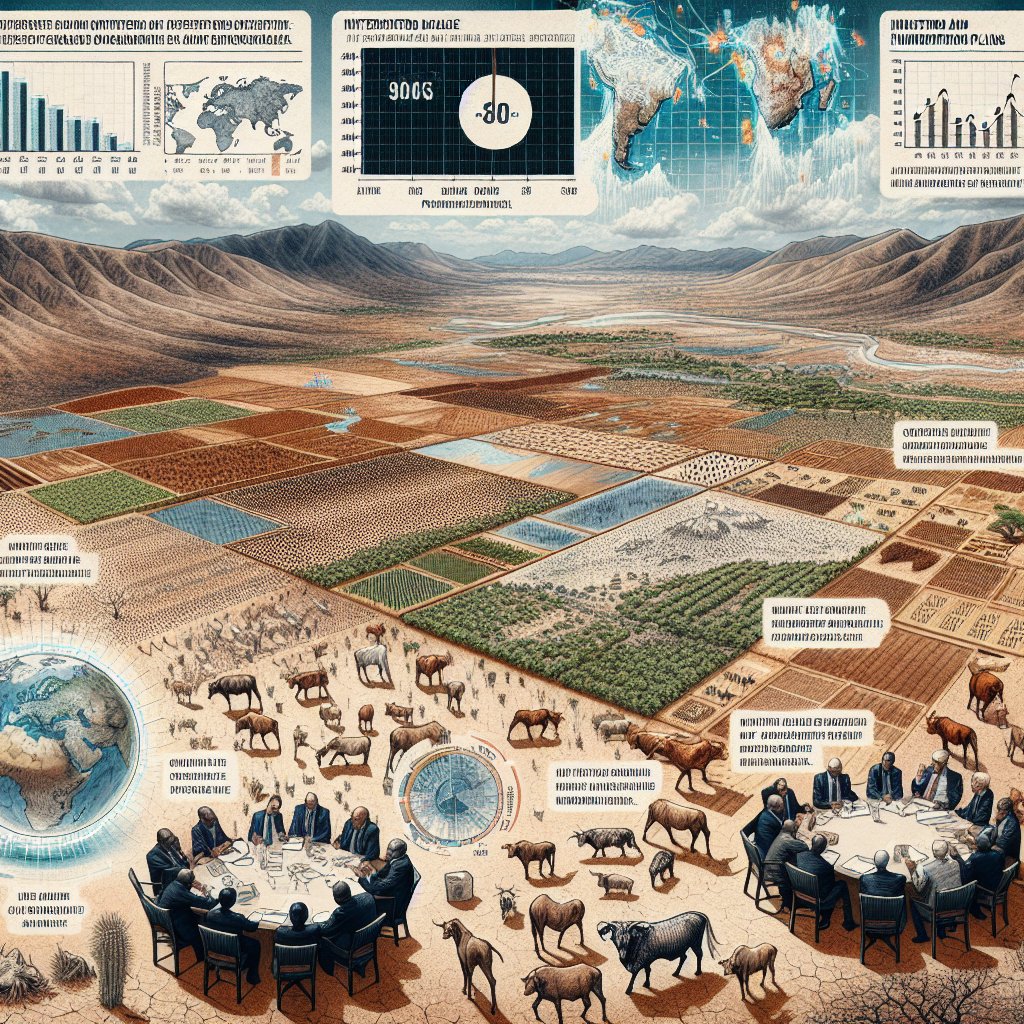Image created by AI
Southern Africa Faces Severe Drought Crisis, 68 Million in Need of Aid
In the grips of an unforgiving drought fuelled by El Niño and climate change, Southern Africa faces a dire humanitarian crisis, impacting millions across the region. Elias Magosi, Executive Secretary of the Southern African Development Community (SADC), announced during a crucial summit in Harare, Zimbabwe, that approximately 68 million people, making up 17 percent of the region's populace, require immediate assistance.
This environmental catastrophe has been wrought by an El Niño-induced weather pattern, leading to significantly reduced rainfall and devastatingly high temperatures. The effects of these climatic extremities have yielded a dramatic decrease in crop and livestock productivity across the region, spiking food shortages and malnutrition rates, with countries like Zimbabwe, Malawi, and Zambia bearing the brunt of this hardship.
The urgency of the situation was highlighted at the recent SADC heads of state meeting, where they grappled with the challenges of securing adequate funding and food aid to support those affected. The discussions were framed against the backdrop of a pronounced drop in agricultural outputs, a situation noted by Al Jazeera's Haru Mutasa as an escalating concern, with crops failing on a vast scale.
The drought's severity was emphasized by a United Nations World Food Programme report in early June, which pointed out the plight of rural communities who reportedly face unprecedented conditions, fueled by the worst February drought in a century. The UN addressed the broader implications of these climate-driven events, highlighting the exacerbating effects on economies, inequality, and global Sustainable Development Goals.
With experts cautioning that such extreme weather events are set to become more frequent and intense due to climate change, the call for global action grows louder. To combat these challenges, the SADC and international community are tasked with formulating and implementing strategies to offer relief and sustainable solutions for the affected populations, while reinforcing the need for a more robust global response to climate change and its impacts.










